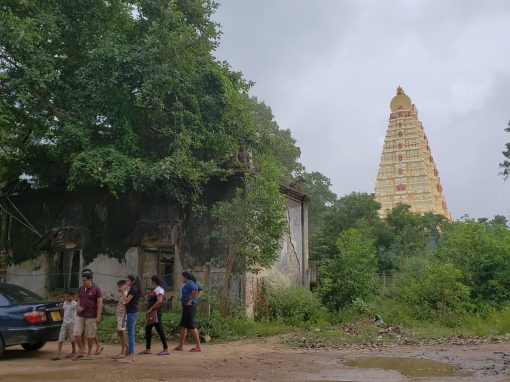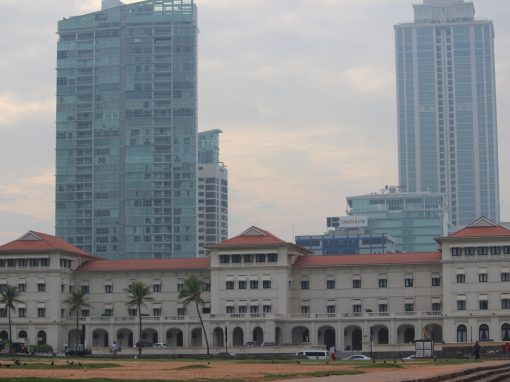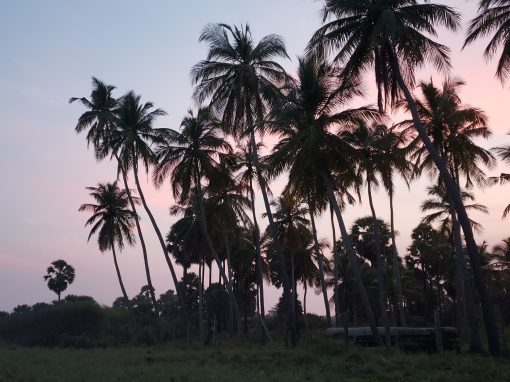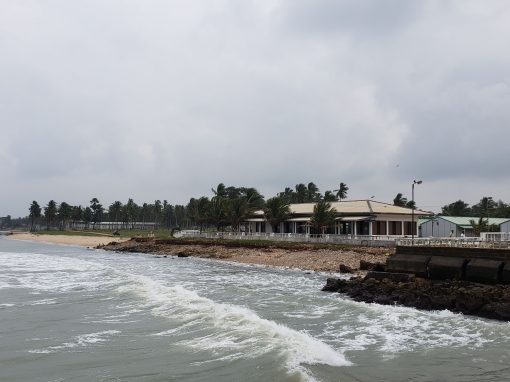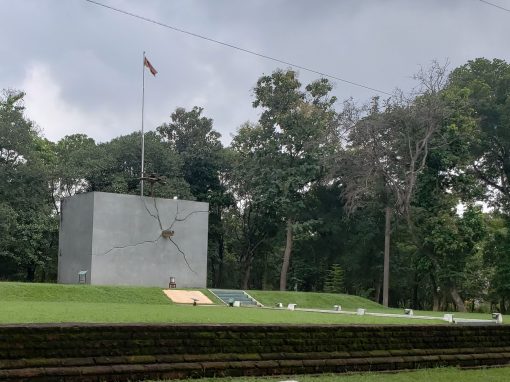History of Reconciliation
Protesters demonstrate for land rights on the road adjacent to the main railway station in Colombo. (Photo © Stephen Cook)
It has now been ten years since the end of the civil war in Sri Lanka but even with the election of a reformist government in 2015, movement towards a true peace and reconciliation has been faltering.
The victory in 2009 was the culmination of a long effort by President Mahinda Rajapaksa, elected in 2005, who appointed his brother, Gotabhaya, as defence secretary. Under their leadership the war was persecuted with renewed zeal through bad faith peace talks and eventually large-scale military offensives a centralization of power that allegedly targeted journalists and activists – during Rajapaksa’s presidency from 2005 until 2015, 17 journalists and media workers were killed.
But they had their victory and with peace came calls for reconciliation from the United Nations and other international bodies – after 26 years of conflict, numerous human rights abuses including unlawful killings had been perpetrated by both sides.
In November 2010, in response to the demands of international observers, the Sri Lankan government ordered the Lessons Learnt and Reconciliation Commission. The inquiry’s report, delivered 18 months later, was critical of the LTTE but shuffled off claims of violence by the Sri Lankan Army.
A 2011 report from the UN was more even-handed: it alleged enforced disappearances, the use of torture (especially immediately following the conflict) by security forces, extensive sexual violence against prisoners, and the abduction and recruitment of child soldiers to fight for the LTTE. The UN Human Rights Council adopted resolutions in 2012, 2013, and 2014 to promote reconciliation and accountability.
When the UN ordered a probe in 2014, it was barred entry from the island nation. Silence permeated international media for years as tourists and foreign journalists alike were not allowed to travel to the north of the country.
In 2010, Sri Lanka ranked 158th for press freedom by Reporters Without Borders. In 2019, it ranks 126th with a headline: Will impunity ever end?
In 2015, the calls of international observers were seemingly answered by the Sri Lankan people with the election of Maithripala Sirisena, who campaigned as part of a reformist coalition promising to change Rajapaksa’s strongman state. The UN Human Rights Council resolution 30/1 in October that year seemed to note the change in tenor, reading that it welcomed the “steps taken by the Government of Sri Lanka since January 2015 to advance respect for human rights and to strengthen good governance and democratic institutions.”
But as years passed true reconciliation never came to pass: prisoners languished indefinitely under draconian anti-terror laws, the fate of the disappeared remained elusive and no one was tried for war crimes.
“(Reconciliation and transitional justice) are maybe not moving it at zero speed, but moving with very little momentum,” said Alan Keenan, an observer from NGO International Crisis Group, which conducts research related to preventing and resolving conflict.
“It’s like a car that hasn’t fully stalled, but it’s stalling.”
Keenan says the first years of Sirisena’s presidency featured improved rhetoric as activism and protest were more openly tolerated. But in the end, Keenan believes real efforts toward reconciliation have stalled because Sirisena has been unwilling to spend the political capital needed to make it happen.
And without a distinct change in policy and narrative, without addressing past wrongs, true peace cannot be built.
“I think the best you’re going to get is an uneasy, bitter peace, which is, I think, what we have now in Sri Lanka where the communities are not actively at war with each other … but all of them feeling they’re under assault and at risk.”
Mario Arulthas, advocacy director for international non-profit People for Equality and Relief in Lanka, calls reconciliation “a pipe dream.”
“There are barriers to accountability,” he said.
In March 2019, Sri Lanka co-sponsored a resolution to promote human rights and accountability. It remains to be seen whether this will just be another piece of rhetoric from the Sirisena regime.
